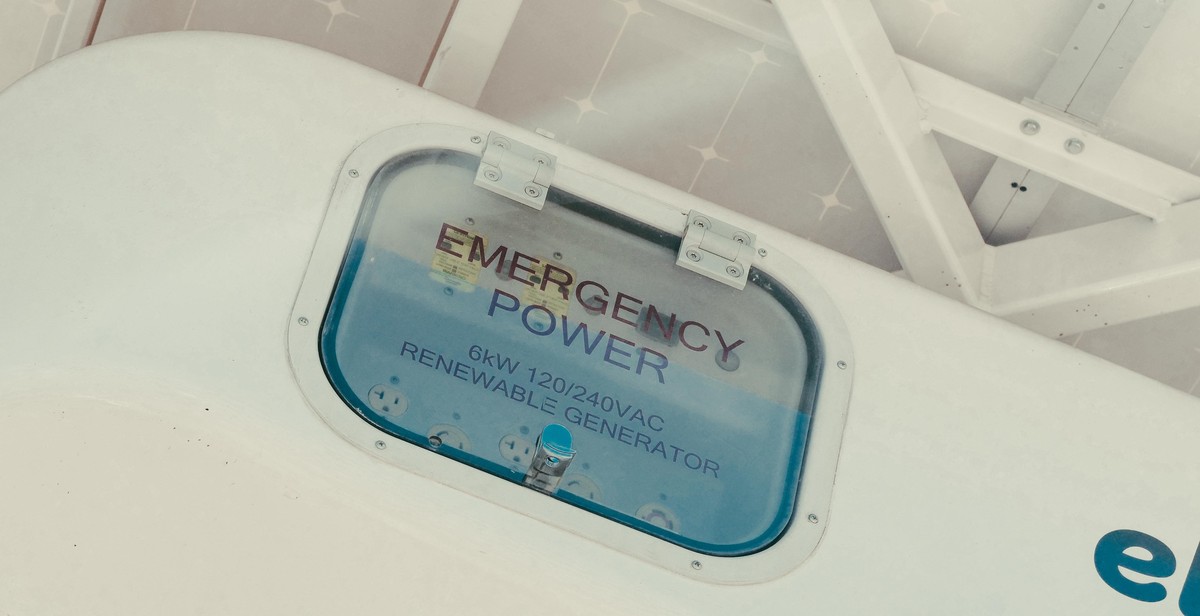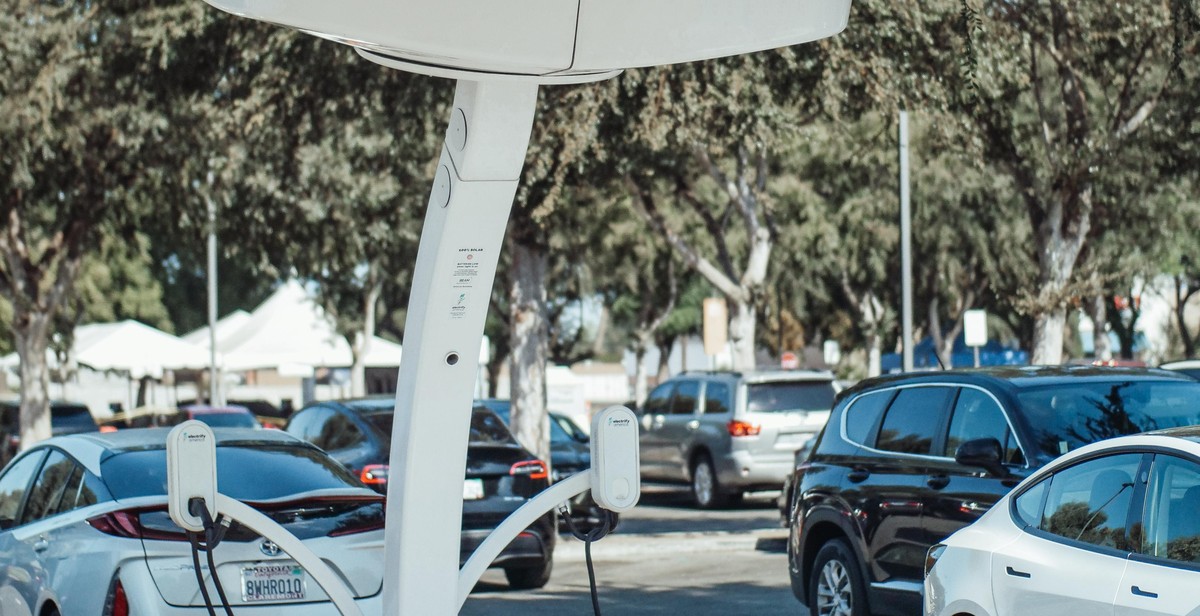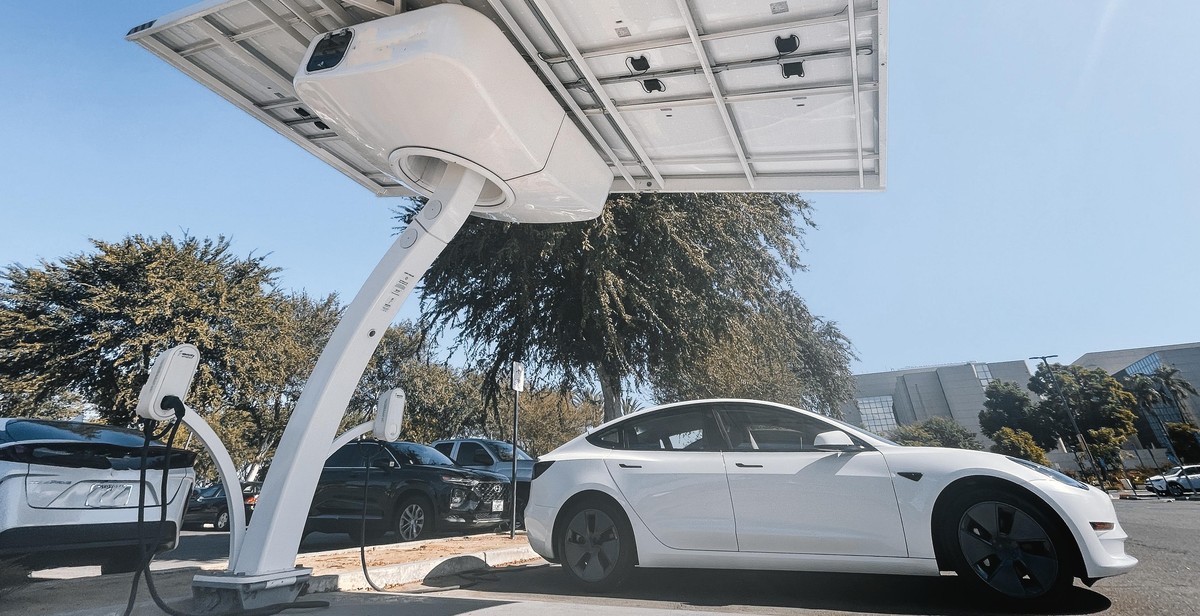Next Generation EV Batteries: A game-changer for the Automotive Industry
Electric vehicles (EVs) are becoming increasingly popular as the world moves towards a more sustainable future. EVs have several advantages over traditional vehicles, including lower emissions and reduced dependence on fossil fuels. However, one major challenge that has prevented the widespread adoption of EVs is the limited range offered by their batteries.
Next-generation EV batteries promise to address this issue and revolutionize the automotive industry. These batteries offer higher energy density, faster charging times, and longer lifespan than the current lithium-ion batteries used in most EVs. They are also more environmentally friendly, with reduced reliance on rare earth metals and other toxic materials.
The Advantages of Next-Generation EV Batteries
Next-generation EV batteries offer several advantages over current lithium-ion batteries, including:
- Higher energy density
- Faster charging times
- Longer lifespan
- Reduced reliance on rare earth metals
- Reduced environmental impact
These advantages have the potential to make EVs more practical and convenient for consumers, and to accelerate the transition to a more sustainable transportation system.
The Future of Next-Generation EV Batteries
As the demand for EVs continues to grow, the development of next-generation EV batteries is becoming increasingly important. Major automakers and battery manufacturers are investing heavily in research and development to bring these batteries to market as quickly as possible.
Overall, next-generation EV batteries have the potential to be a game-changer for the automotive industry, making EVs more practical and convenient for consumers and accelerating the transition to a more sustainable transportation system.

What are Next Generation EV Batteries?
Next Generation EV Batteries refer to a new class of batteries that are currently being developed to power electric vehicles. These batteries are expected to be more efficient, cost-effective, and environmentally friendly than the current lithium-ion batteries that are commonly used in electric vehicles today.
Types of Next Generation EV Batteries
There are several types of Next Generation EV Batteries currently being researched and developed, including:
- Solid-State Batteries: These batteries use a solid electrolyte instead of the liquid or gel electrolyte found in traditional lithium-ion batteries. Solid-state batteries are expected to have higher energy density, faster charging times, and increased safety compared to traditional lithium-ion batteries.
- Lithium-Sulfur Batteries: These batteries use sulfur instead of cobalt, which is a rare and expensive metal, as the cathode material. Lithium-sulfur batteries have the potential to offer higher energy density and lower costs than traditional lithium-ion batteries.
- Metal-Air Batteries: These batteries use oxygen from the air as the cathode material, which makes them lighter and more energy-dense than traditional lithium-ion batteries. Metal-air batteries are still in the early stages of development but have the potential to revolutionize the electric vehicle industry.
Overall, Next Generation EV Batteries have the potential to significantly improve the performance and affordability of electric vehicles. As research and development continue, it is likely that we will see more innovative and sustainable battery technologies emerge in the near future.

Advantages of Next Generation EV Batteries
Next generation EV batteries have several advantages over their predecessors. These advantages make them more efficient, reliable, and cost-effective. The three main advantages of next generation EV batteries are:
Higher Energy Density
One of the major advantages of next generation EV batteries is their higher energy density. This means that they can store more energy in a smaller space, which translates to longer driving ranges for electric vehicles. With higher energy density, electric vehicles can travel longer distances on a single charge, making them more practical for everyday use. This is particularly important for drivers who need to cover long distances on a regular basis.
Fast Charging Capability
Next generation EV batteries also have fast charging capabilities. With rapid charging, electric vehicle owners can recharge their batteries in just a few minutes, rather than the hours it takes with traditional EV batteries. This makes electric vehicles more convenient and practical for everyday use, as drivers can quickly recharge their batteries while on the go.
Longer Lifespan
Another advantage of next generation EV batteries is their longer lifespan. These batteries can last for several years without needing to be replaced, which reduces the cost of ownership for electric vehicles. With longer lifespans, electric vehicles become more cost-effective and sustainable, as they require fewer replacements and less maintenance over time.
| Advantages | Explanation |
|---|---|
| Higher Energy Density | Stores more energy in a smaller space, resulting in longer driving ranges |
| Fast Charging Capability | Recharge batteries in just a few minutes, making electric vehicles more convenient for everyday use |
| Longer Lifespan | Last for several years without needing to be replaced, reducing the cost of ownership |

Disadvantages of Next Generation EV Batteries
While next-generation EV batteries offer several advantages, including faster charging times and longer ranges, they also come with some disadvantages that need to be considered. Two significant disadvantages are:
Expensive to Manufacture
Next-generation EV batteries are still relatively new, and the technology used to manufacture them is complex. As a result, the cost of producing these batteries is high. While this cost is expected to decrease as the technology becomes more widespread, it could still be a barrier to widespread adoption of EVs, particularly in developing countries where cost is a significant factor.
Safety Concerns
The safety of next-generation EV batteries is another concern. Lithium-ion batteries, which are commonly used in EVs, are known to be volatile and can catch fire if they are damaged or overcharged. While next-generation batteries use different chemistries that are less prone to catching fire, they are still not entirely safe. In addition, the high energy density of these batteries means that they can release a significant amount of energy in the event of an accident, which could be dangerous.
Manufacturers are working to address these safety concerns by developing better battery management systems, but it is still essential to handle these batteries with care and follow proper safety protocols when charging or handling them.
| Advantages | Disadvantages |
|---|---|
| Faster charging times | Expensive to manufacture |
| Longer ranges | Safety concerns |
| Lower environmental impact |

Next Generation EV Battery Technologies
The development of next-generation electric vehicle (EV) batteries is crucial for the widespread adoption of electric vehicles. The current generation of lithium-ion batteries has limitations in terms of energy density, charging time, and safety. Researchers and manufacturers are exploring various technologies to overcome these limitations and improve the performance of EV batteries.
Solid-State Batteries
Solid-state batteries are a promising technology that could replace the traditional liquid electrolyte in lithium-ion batteries. They use a solid electrolyte, which eliminates the risk of leakage and fire. Solid-state batteries can also have higher energy density and faster charging times than traditional lithium-ion batteries. However, they are still in the development stage, and their production costs are high.
Lithium-Sulfur Batteries
Lithium-sulfur batteries have the potential to provide higher energy density than lithium-ion batteries. They use sulfur as the cathode material, which is abundant and inexpensive. Lithium-sulfur batteries also have a lower environmental impact than lithium-ion batteries. However, they have a shorter lifespan and are less stable than lithium-ion batteries.
Graphene Batteries
Graphene is a material that has excellent conductivity and can be used to improve the performance of batteries. Graphene batteries have higher energy density and faster charging times than traditional lithium-ion batteries. They are also more durable and have a longer lifespan. However, the production costs of graphene batteries are still high.
Silicon Anode Batteries
Silicon is a promising material for the anode of lithium-ion batteries. Silicon anode batteries can provide higher energy density and longer lifespan than traditional lithium-ion batteries. However, they have issues with stability and are prone to cracking during charging and discharging cycles.
Metal-Air Batteries
Metal-air batteries use oxygen from the air as the cathode material, which eliminates the need for heavy and expensive cathode materials. They have the potential to provide higher energy density than lithium-ion batteries and have a longer lifespan. However, they are still in the development stage and have issues with stability and efficiency.
| Battery Type | Advantages | Disadvantages |
|---|---|---|
| Solid-State Batteries | High energy density, fast charging times, no risk of leakage or fire | High production costs, still in development stage |
| Lithium-Sulfur Batteries | Higher energy density, lower environmental impact, abundant and inexpensive cathode material | Shorter lifespan, less stable than lithium-ion batteries |
| Graphene Batteries | Higher energy density, faster charging times, more durable and longer lifespan | High production costs |
| Silicon Anode Batteries | Higher energy density, longer lifespan | Issues with stability, prone to cracking during charging and discharging cycles |
| Metal-Air Batteries | Higher energy density, longer lifespan, no need for heavy and expensive cathode materials | Still in development stage, issues with stability and efficiency |

Challenges in Developing Next Generation EV Batteries
The development of next-generation electric vehicle (EV) batteries is crucial for the widespread adoption of electric vehicles. However, there are several challenges that need to be addressed in order to achieve this goal. The three main challenges are cost, safety, and performance.
Cost
One of the biggest challenges in developing next-generation EV batteries is reducing the cost of production. Current lithium-ion batteries are expensive to manufacture, which makes electric vehicles more expensive than traditional gasoline-powered vehicles. To make EVs more affordable, the cost of producing batteries needs to be reduced. This can be achieved by improving the manufacturing process, using cheaper materials, and increasing production scale.
Safety
Safety is another major challenge in developing next-generation EV batteries. Lithium-ion batteries are known to be prone to thermal runaway, which can lead to fires and explosions. To improve safety, researchers are exploring new materials and designs that are less prone to thermal runaway. Additionally, better battery management systems can help prevent dangerous situations by monitoring and regulating the battery’s temperature and state of charge.
Performance
The performance of next-generation EV batteries needs to be improved in order to increase their range and reduce charging times. This can be achieved by increasing the energy density of the battery, which means more energy can be stored in the same amount of space. Researchers are exploring new materials, such as solid-state electrolytes, to improve energy density. Additionally, faster charging technologies, such as fast charging and wireless charging, are being developed to reduce charging times.
| Challenge | Solution |
|---|---|
| Cost | Improve manufacturing process, use cheaper materials, increase production scale |
| Safety | Explore new materials and designs, better battery management systems |
| Performance | Increase energy density, develop faster charging technologies |

The Future of Next Generation EV Batteries
The world is moving towards electric vehicles (EVs) at a rapid pace, and the demand for efficient and reliable batteries is increasing. The next generation of EV batteries is expected to bring about significant changes in the automotive industry, making EVs more affordable and accessible to the masses.
Increased Adoption of EVs
The future of next-generation EV batteries is promising, with the increasing adoption of electric vehicles worldwide. The demand for EVs is expected to grow significantly in the coming years, and the market for EV batteries is projected to reach $93.94 billion by 2025. This growth is driven by the need for sustainable transportation and the increasing awareness of the environmental impact of traditional gasoline-powered vehicles.
Lower Costs and Improved Performance
The next generation of EV batteries is expected to be more affordable and efficient than their predecessors. With advancements in technology, manufacturers are aiming to reduce the cost of production and improve the performance of EV batteries. This will lead to longer driving ranges, faster charging times, and reduced maintenance costs for EV owners.
Innovative Battery Designs
The future of next-generation EV batteries is not limited to lithium-ion technology. Manufacturers are exploring new materials and innovative designs to create more efficient and sustainable batteries. These include solid-state batteries, flow batteries, and lithium-sulfur batteries, among others. These innovative designs aim to improve the safety, energy density, and overall performance of EV batteries.
| Benefits of Next Generation EV Batteries |
|---|
| Increased driving range |
| Faster charging times |
| Reduced maintenance costs |
| Improved safety |
| More sustainable |
The future of next-generation EV batteries is bright, with advancements in technology and increasing demand for sustainable transportation. The benefits of these batteries are numerous, including increased driving range, faster charging times, reduced maintenance costs, improved safety, and sustainability. As the automotive industry continues to evolve, the next generation of EV batteries will play a crucial role in shaping the future of transportation.

Leave a Reply